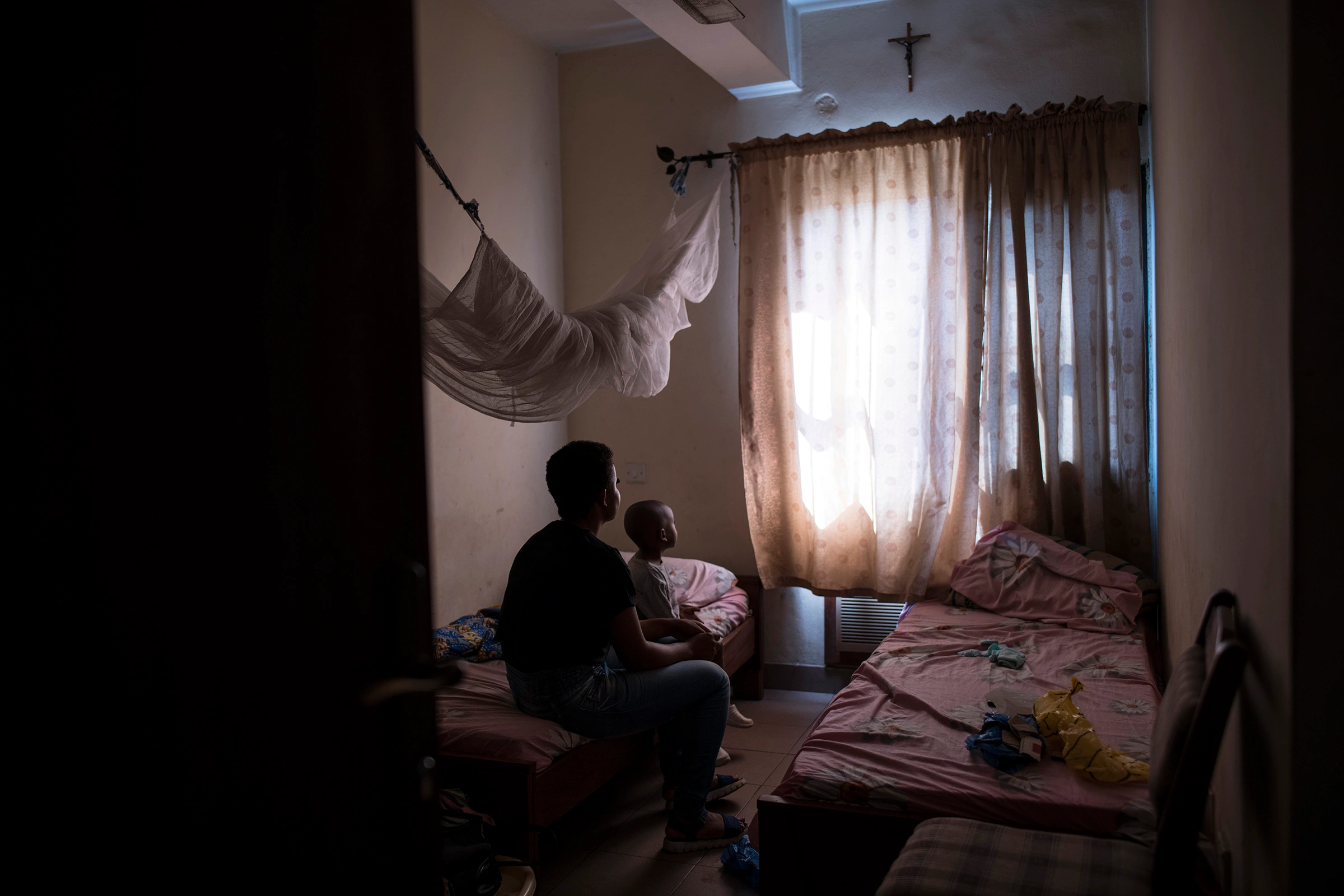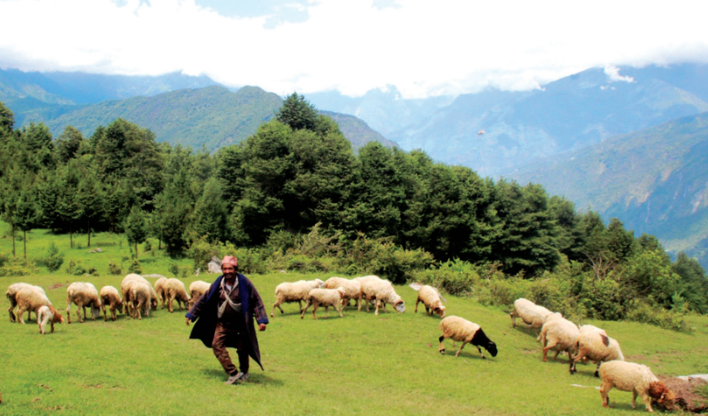Nepal requests India for 300,000 tons of wheat
Nepal has requested India to supply 300,000 tons of wheat as the country’s flour mills face a shortage of wheat leading to the closure of many of its mills. The shortage of wheat also led to a scarcity of wheat flour triggering a rise in the prices of products made of wheat flour including biscuits, noodles, and bread. “We have sent a request to the Indian government in line with demands from the flour mills,” said an official at the Ministry of Industry, Commerce and Supplies. “It has been around two weeks since the request was sent to India.” India imposed a ban on wheat exports in May last year after unseasonably hot weather hit the harvest in the country. In March 2022, a heatwave curtailed India's wheat production to 100m tons against local consumption of 103.6m tons. In December last year, the southern neighbor allowed the export of wheat to Nepal by setting the quota at 50,000 till March end. But flour mills were asking the government to make a request for at least 200,000 tons of flour. As Nepal does not produce enough wheat, the country has to import from India, the second-largest producer of wheat in the world. After Russia's invasion of Ukraine affected wheat production and supply from the two warring countries badly, the big producers of wheat started to curtail exports considering food security in their own nations. The decline in wheat production due to heat waves gave another reason for India to ban wheat exports. India faced another heatwave in northern and central India in February this year. The heatwave at a time the crop is ripening is threatening to damage grains and dent the country's wheat production for the second straight year, Reuters reported in early March this year. The maximum temperature in some wheat-growing areas jumped above 39 degrees Celsius for a few days in February, nearly 10 degrees Celsius above normal, according to weather department data. In the middle of February this year, India’s Ministry of Agriculture and Farmers Welfare said that wheat production is estimated to reach 112.18m tons during 2022/23, which is 4.12 percent higher than 107.74m tons recorded during 2021/22. Although wheat production in India is forecast to increase in the 2023/24 marketing year, the Indian government is unlikely to relax its export ban on wheat and wheat products, at least through the peak harvest/marketing period, according to a Global Agricultural Information Network report from the Foreign Agricultural Service of the US Department of Agriculture (USDA). “Policymakers are fretting over reports predicting a strengthening of the El Niño later in 2023, potentially impacting Indian agricultural production and food supplies,” the USDA said. “In the run-up to India’s state and national elections and to combat food inflation, the government will ensure the availability of sufficient wheat supplies." The limited export quota set for Nepal has not been sufficient to keep up with the demand which resulted in price rises for everything that is produced with wheat flour. Manufacturers have either increased the price or have kept prices of products unchanged while packaging with less quantity.
NIA issues micro-insurance license to two companies
The Nepal Insurance Authority (NIA) has awarded licenses to two companies to operate micro-insurance services. Guardian Micro Life Insurance and Nepal Micro Insurance received the licenses from the authority. NIA issued letters of intent (LoI) to seven companies, of which three are life and four are non-life, to operate micro-insurance business in the last week of November 2022. Guardian Micro Life Insurance, Crest Micro Life Insurance, and Liberty Micro Life Insurance received LoIs for life micro-insurance. Similarly, Trust Micro Insurance, Nepal Micro Insurance, Star Micro Insurance, and Protective Micro Insurance received LoIs for non-life micro-insurance. On August 28, 2022, NIA invited applications for the establishment of at most one (life insurance or non-life insurance) micro-insurance company in each province. A total of 31 companies applied for micro-insurance licenses. According to the authority, only four companies have met the capital requirement to operate micro-insurance services. The minimum paid-up capital for a micro-insurance company has been set at Rs 750m. Guardian Micro Life Insurance, Crest Micro Life Insurance, Nepal Micro Insurance, and Protective Micro Insurance have raised the required capital, according to NIA. The authority has granted additional 45 days to three companies to meet the capital requirement. NIA has also issued the Micro Insurance Directive 2023 and set the business limits of micro non-life and small life insurance companies. As per the directive, micro non-life insurance companies will be allowed to insure up to Rs 5m. Similarly, micro-life insurance companies can provide insurance with a sum assured of less than Rs 500,000. Micro non-life insurance companies will be allowed to insure vehicles used in the cottage industry and agriculture sector which include tractors, trailers, thresher machines, tempo, and motorcycles. Raju Raman Poudel, executive director of NIA, said that micro-insurance companies are required to provide micro-insurance services targeting the poor, low-income groups, residents of backward areas, and marginalized communities. "The concept of micro-insurance came up after large insurance companies did not show much interest in providing insurance to people from marginalized groups and communities," said Poudel, adding, "Therefore, we have directed the micro-insurers to target people from low-income groups and marginalized communities."
Mahat directs customs officials to submit progress report
Finance Minister Prakash Saran Mahat has directed the Department of Customs (DoC) to submit the latest progress report on import and export at each customs point across the country. Addressing the Customs Management Seminar organized by the Department of Customs on Monday, Mahat sought reasons from the department for the low revenue collection from customs points. Mahat asked the director general of DoC to submit the actual data to the ministry to find out if revenue collection slumped due to a decline in the import of goods or smuggling. Stating that revenue leakage in the customs points including the Tribhuvan International Airport has become rampant, the finance minister asked high officials of DoC to consider the issues seriously. According to Mahat, serious discussions have been held also with law enforcement agencies to control the leakage of revenue. He urged the customs officials to monitor it in coordination with the security agencies. "Revenue collection has dropped in many customs points. There is news of revenue leakage from these points. The same is the case at Bhairahawa, Birgunj, and Rasuwa custom points," he said. The decline in imports has hit the government's revenue collection hard. According to DoC, revenue from imports has declined by 25 percent in the eight months of the current fiscal year compared to the same period of the last fiscal year. DoC collected revenue worth Rs 250.64bn till mid-March, which was Rs 333bn a year ago. The country's total imports have declined by 18 percent in the review period. Nepal has imported goods worth Rs 1,057bn in the eight months of FY 2022/23 compared to Rs 1,308bn during the same period of FY 2021/22. With the domestic economic activities also decreasing, the government's inland revenue collection has also suffered along with import-based revenue. The Inland Revenue Department (IRD) has been able to achieve about 80 percent of the revenue collection target in the first eight months of the current fiscal year. The department had set a target of raising Rs 353.91bn by mid-March, 2023. However, it succeeded in raising only Rs 281.99bn which is 79.67 percent of the target. According to IRD, income tax collection stood at Rs 117.07bn against the target of Rs 158.25bn. The department collected Value Added Tax (VAT) worth Rs 68.77bn against the target of 82.43bn. The revenue collection from excise duty is also below the target. The department has collected excise duty worth Rs 64.81bn against the target of Rs 76.82bn. The department also missed the target for house rent tax and health service tax. The education tax is the only heading in which the IRD has managed to meet the target.
Korean national deported for visa misuse
The government of Nepal has deported a Korean national for misusing his tourist visa. The Ministry of Home expelled Yeon He Lee after the Department of Immigration, in the course of an investigation launched on the basis of a complaint, found the Korean national’s involvement in propagating Christianity in Nepal, according to Jhalak Ram Adhikari, the department’s director-general. The secretary-level decision of the ministry has also barred the Korean national from returning to Nepal for a year. The immigration department deported him to Seoul on a Korean Air flight on Monday evening. Acting on the complaint regarding the Korean national’s alleged involvement in spreading Christianity, the department had directed the Tourist Police to produce him in person. Subsequently, tourist police produced the foreign national at the department on March 20. In the course of questioning at the department on March 21, the foreigner reportedly failed to come clean on the charge of misusing his visa for propagating the faith. The Korean national had obtained his tourist visa on February 13, 2023, which was to expire on May 23. Before that, he had been staying in Nepal on a business visa and running a business, which has been closed.



















